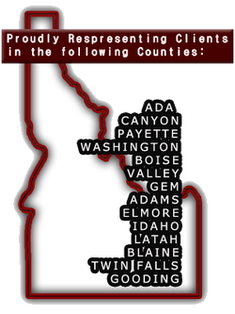|
On October 29, 2014, the Idaho Supreme Court held that Idaho’s implied consent statute is not a valid exception to the warrant requirement for blood draws. State v. Wulff. This means that Idaho’s implied consent statute no longer gives police the power to draw your blood without a warrant and therefore Idaho drivers may refuse to submit to blood draws on this basis.
There are, however, still situations in which a police officer may draw your blood without a warrant. In those cases, determining whether or not a police needs a warrant to draw your blood is assessed case by case and based on the totality of the circumstances. And while the a person’s natural metabolism of alcohol by itself is not recognized as an exception to the warrant requirement, it is a factor that courts consider when determining if a warrantless blood draw is ok. The takeaway from State v. Wulff is that Idaho’s implied consent laws do not give police officers the power to perform forced blood draws without a warrant. It is also still important to note that in some situations warrantless blood draws are still allowed, but those exceptions are determined by considering the circumstances in each case.
1 Comment
|
Archives
February 2023
AuthorDevon Wilson, Marketing, PR Categories |
|
Boise Law Firm - Local Map listing
|

Jeff Nona Attorney at Law - Serving The following Counties in Idaho
Ada County Canyon County Payette County Washington County Boise County Valley County Gem County Adams County Elmore County Idaho County Latah County Blaine County Twin Falls County Gooding County |
READ ABOUT US:
legaldirectorate.com/company/jeffery-e-nona-2083311633-boise/
https://threebestrated.com/dwi-lawyers/jeffery-enona---jeff-nona-attorney-at-law-boise-city-130909058
READ ARTICLES ON OUR BLOG
legaldirectorate.com/company/jeffery-e-nona-2083311633-boise/
https://threebestrated.com/dwi-lawyers/jeffery-enona---jeff-nona-attorney-at-law-boise-city-130909058
READ ARTICLES ON OUR BLOG
If you need help, call Jeffery E. Nona, Attorney At Law today at 208-331-1633 to schedule your free initial consultation.
***The information on this website is for general information purposes only. Nothing on this site should be taken as legal advice for any is not intended to create, and receipt or viewing does not constitute, an attorney-client relationship.
Contact Us | Resources | Terms Of Use | Privacy Policy | Linking Policy | Jeff Nona Attorney at Law - All Rights Reserved
 RSS Feed
RSS Feed

